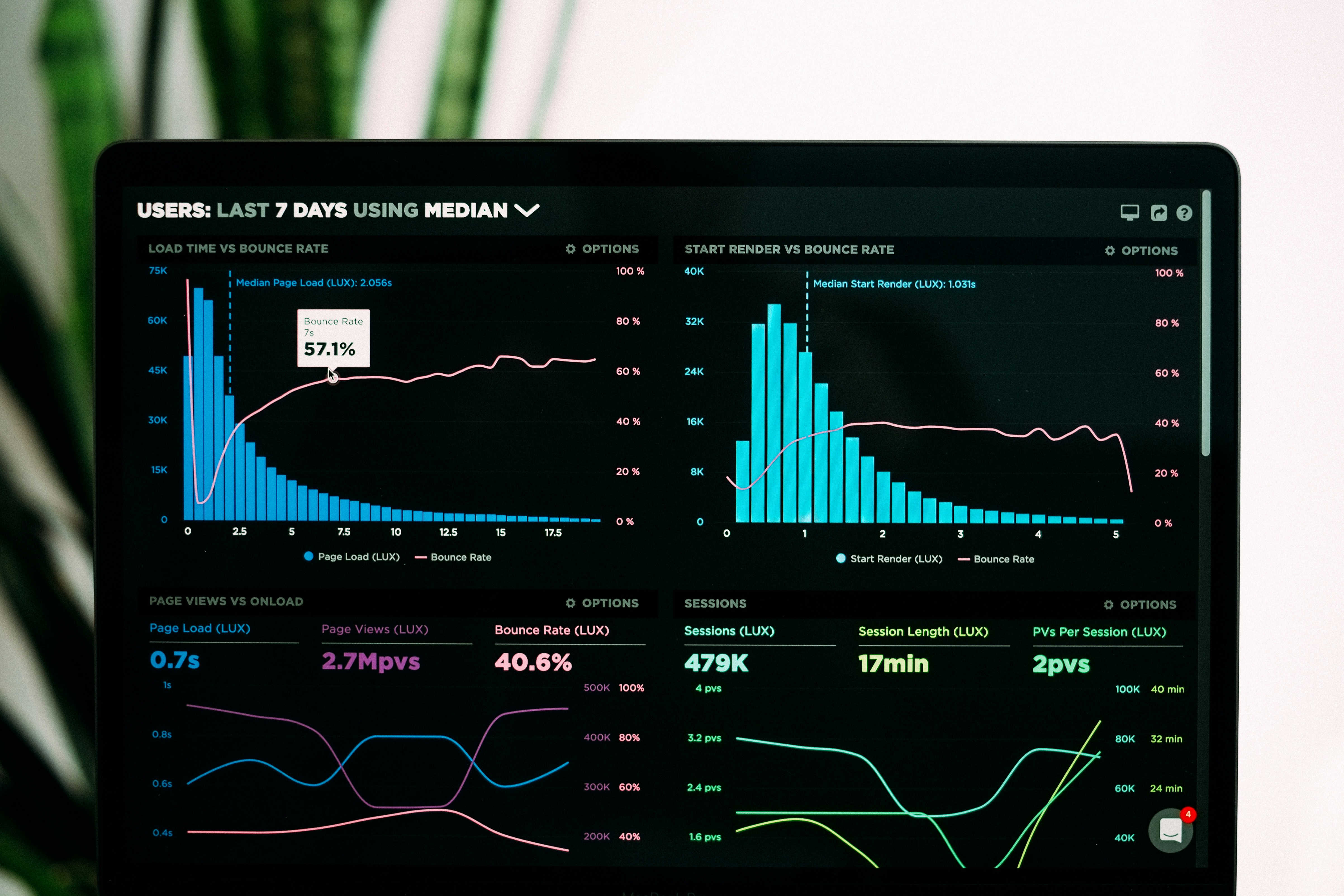DA PA Checker: The Complete Guide to Domain and Page Authority
Learn how to measure, analyze, and improve your website's SEO performance metrics
Understanding DA and PA: Essential SEO Metrics

DA and PA metrics help you understand your website's search engine ranking potential
Domain Authority (DA) and Page Authority (PA) are crucial metrics that help SEO professionals evaluate and compare website strength. Developed by Moz, these scores predict how well a website or page will rank on search engine results pages (SERPs).
Table of Contents
What Are Domain Authority and Page Authority?
Domain Authority (DA) is a search engine ranking score developed by Moz that predicts how well a website will rank on search engine result pages (SERPs). DA scores range from 1 to 100, with higher scores indicating a greater ability to rank.

Understanding your website's authority metrics is the first step to SEO improvement
Page Authority (PA) is a similar metric that predicts the ranking strength of individual pages rather than entire domains. Both scores are calculated using multiple factors, including:
- Linking root domains (number of unique websites linking to you)
- Total number of backlinks
- Quality of linking domains
- Social signals and engagement metrics
- Content quality and relevance
- Technical SEO factors
Note: DA and PA are logarithmic metrics, meaning it's easier to grow your score from 20 to 30 than from 70 to 80. This mimics the difficulty of competing with established, authoritative sites as you move up the ranking ladder.
Why DA and PA Matter for SEO
While Google doesn't use DA and PA directly in its ranking algorithms, these metrics have become industry standards for several reasons:
1. Comparative Analysis
DA and PA allow you to compare your website against competitors. By understanding where you stand, you can set realistic goals and develop effective strategies.
2. Link Building Guidance
When seeking backlinks, focusing on websites with higher DA scores generally leads to better SEO outcomes. A link from a DA 80 site will typically pass more "link juice" than one from a DA 20 site.
3. Progress Tracking
Monitoring your DA and PA over time helps you measure the effectiveness of your SEO efforts. Consistent improvement indicates your strategies are working.

Regular monitoring of authority metrics is essential for SEO success
Pro Tip: Don't focus on DA and PA exclusively. While important, they're just two of hundreds of ranking factors. A holistic SEO strategy addresses content quality, user experience, technical SEO, and many other elements.
How to Check Your DA and PA Scores
Checking your Domain Authority and Page Authority is straightforward with the right tools. Here's a step-by-step guide:
- Choose a DA PA checker tool: Several reliable tools are available, including Moz's Link Explorer, SEMrush, Ahrefs, and specialized DA checkers.
- Enter your domain or URL: For DA, enter your root domain (e.g., example.com). For PA, enter the specific page URL.
- Analyze the results: Review your scores and compare them to competitors.
- Track over time: Use tools that offer historical tracking to monitor progress.

Modern DA PA checker tools provide comprehensive SEO metrics beyond just authority scores
Most DA PA checker tools provide additional valuable information, such as:
- Backlink profile analysis
- Top performing pages
- Competitor comparison
- Spam score assessment
- Ranking keyword data
Strategies for Improving Your DA and PA
Improving your Domain Authority and Page Authority requires a multifaceted approach. Here are proven strategies:
1. Quality Link Building
Focus on earning backlinks from high-authority, relevant websites. This includes:
- Guest posting on industry-relevant websites
- Creating link-worthy content (research studies, infographics)
- Broken link building
- Digital PR and outreach
2. Content Optimization
Create comprehensive, authoritative content that addresses user intent:
- Develop pillar pages and topic clusters
- Update and refresh old content
- Ensure content is well-researched and valuable
- Optimize for featured snippets and voice search

Quality content is the foundation of strong domain authority
3. Technical SEO Improvements
Ensure your website is technically sound:
- Fix broken links and redirect errors
- Improve page loading speed
- Ensure mobile responsiveness
- Implement proper schema markup
- Create an intuitive site structure
Ready to Check Your Website's Authority?
Use our free DA PA checker tool to analyze your website and get personalized recommendations for improvement.
Check Your DA PA NowCommon Mistakes to Avoid
When working to improve DA and PA, many website owners make these critical errors:
1. Chasing Numbers Instead of Quality
Focusing solely on increasing your DA score rather than building genuine authority often leads to poor tactics like purchasing links or using other black-hat techniques that can result in penalties.
2. Ignoring Niche-Relevant Links
A link from a highly relevant website with moderate DA is often more valuable than a link from an irrelevant high-DA site. Relevance signals are powerful ranking factors.
3. Neglecting Content Quality
Without excellent content, even the best link building efforts will fall short. Content is what attracts natural links and engages users.
4. Overlooking Technical Issues
Crawling errors, slow loading times, and poor mobile experience can undermine all other SEO efforts.
DA PA Checker Tools Comparison
Various tools offer DA and PA checking capabilities. Here's a comparison of popular options:
| Tool | DA/PA Metrics | Key Features | Price Range |
|---|---|---|---|
| Moz Pro | Yes (Original) | Comprehensive SEO toolkit, Link Explorer, keyword research | $99-$599/month |
| Ahrefs | No (Own metric: DR/UR) | Extensive backlink database, content analysis, rank tracking | $99-$999/month |
| SEMrush | Yes | All-in-one marketing toolkit, position tracking, content optimization | $119-$449/month |
| Free DA Checkers | Yes | Basic DA/PA checking, sometimes with limited additional features | Free |
Remember: Different tools may show slightly different DA scores because they use different indexes and update frequencies. It's best to consistently use the same tool for tracking purposes.
Frequently Asked Questions About DA PA Checkers
DA is relative to your niche and competition. Generally:
- DA 0-10: New or penalized website
- DA 10-30: Small or new website
- DA 30-50: Established website with decent SEO
- DA 50-60: Authority website in its niche
- DA 60+: Top authority website
Focus on outperforming your direct competitors rather than chasing arbitrary numbers.
For most websites, checking once a month is sufficient. DA doesn't change dramatically overnight. Monthly checks allow you to track meaningful progress without becoming obsessed with daily fluctuations. However, if you're running an intensive link building campaign, you might check more frequently to gauge its effectiveness.
While there are no legitimate shortcuts to dramatically increasing DA quickly, you can accelerate improvement through:
- Aggressive but white-hat link building campaigns
- Removing or disavowing toxic backlinks
- Publishing viral content that attracts natural links
- Technical SEO audits and fixes
Be wary of services promising instant DA increases—these typically use manipulative tactics that can lead to penalties.
Sudden DA drops can occur for several reasons:
- Loss of valuable backlinks
- Algorithm updates affecting how links are valued
- Technical issues preventing proper crawling
- Manual penalties for unnatural linking
- Moz index updates (most common)
If your DA drops, audit your backlink profile and technical SEO before panicking—sometimes it's just a fluctuation in Moz's index.
No, Domain Authority is not a direct Google ranking factor. It's a metric developed by Moz to predict ranking potential. However, since DA correlates with many factors that Google does use in its ranking algorithm (like quality backlinks), improving your DA typically improves your organic search performance.



